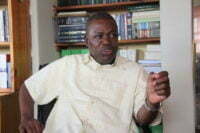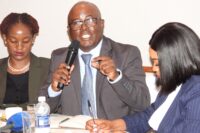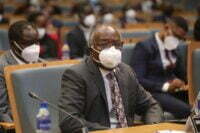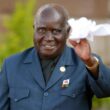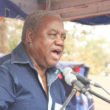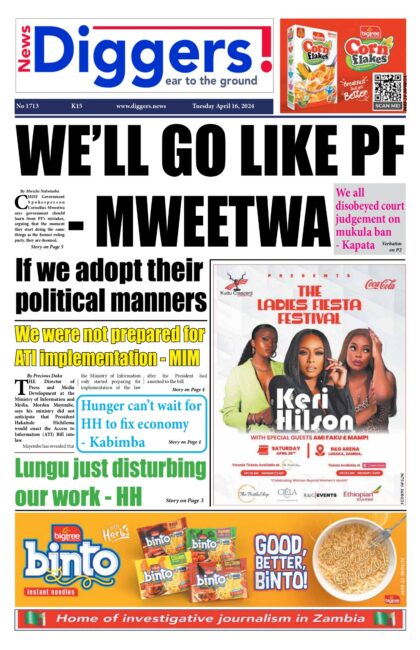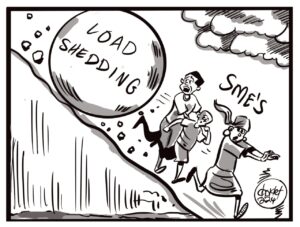Last Friday, 25 May 2018, marked Africa Freedom Day. Like every year, our political leaders and foreign dignitaries gathered at State House to offer platitudes on African unity and freedom. Earlier, they had gone to the Freedom Statue where they laid wreaths in honour of those who died in pursuit of the freedom of Zambia and Africa. This is an appropriate time to reflect about this day and ask: what is it that we are celebrating or commemorating? What does Africa Freedom Day mean for the ordinary citizen? What is it that Zambians are free to do on Africa Freedom Day? If those individuals celebrating independence in October 1964 could have seen a vision of what Zambia would be like in 50 years’ time, they would undoubtedly have been disappointed. Take the sorry and shameful case of Mpundu Mutembo. Many Zambians, especially residents of Lusaka, will know what this man looks like although they have never met him and he does not occupy a prominent position in public life. This is because Mutembo is the model for the famous Freedom Statue on Independence Avenue depicting a man breaking the chains of colonial oppression that had shackled Zambia’s people.
Mutembo himself has little to celebrate. This man, on whom one of our national symbols is based and who appears on the Kwacha, lives in poverty. Successive governments have forgotten him. Promises to provide an income, housing and food security have all been broken. Even the land he lives on in Mbala, Northern Province, was not a gift from the government. It was in fact granted to him by the last colonial governor of Northern Rhodesia. The governments of an independent Zambia have given him nothing. They all have forgotten him. Yet every year, on 25 May, our leaders go to the Freedom Statue to pay homage to a sculpture that he inspired. “I am suffering. I walk on foot. I don’t eat properly. Some of my children have died in poverty. I can’t even take my children to school. Where do I find the money? Very shameful,’ Mutembo told News Diggers on Africa Freedom at a braai organised by opposition National Restoration Party leader Elias Chipimo to raise funds for him. A few metres away from the venue of the braai, those for whom the poor 82-year-old had fought and who have since neglected him, were having a buffet. It is not too late to provide Mpundu with some dignity in his old age. Those who go to pay homage to the statue depicting him will do well to provide something for the man himself and for his fellow citizens who live in the same conditions of squalor. Chipimo deserves credit for inviting Mutembo to Lusaka and holding a braai meant to raise funds in his honour. This freedom fighter is surely owed more than a square meal. I plead with our political leaders to give this man some dignity. Please help him before he dies.
The ill-treatment we have accorded Mutembo should be a matter of deep shame for our country, but perhaps it is appropriate that our national symbol is a forgotten hero of our nationalist struggle living in poverty. It is at least consistent with how another national hero was treated. Mpundu Mponde Mutale, the singer of Africa my Africa, a song that has effectively become the official anthem at celebrations to mark Africa Freedom Day and which has brought a tear to the eye of successive generations of Zambia’s political leaders, was solely forgotten. He too lived in squalor and was literally left to die. Every year, on Africa Freedom Day, a very expensive car from State House would arrive in Chibolya, an impoverished slum in Lusaka, behind SOWETO Market, where he lived alone in a single-roomed shack made of cardboard and worn metallic sheets, partitioned in the middle by a filthy piece of well-worn cloth. Possibly the only time in a year that he rode in a car, it would collect and bring him to State House, where he was asked to sing the song, to convey history through music, and feted for a few hours in what constituted a brief acknowledgement of his role. After the celebrations, Mutale was again discarded, only to be remembered the following year on 25 May.
A pauper, Mutale had no house, no job, no income, no running water, no electricity and no access to healthcare. He went for days without a meal and only survived through the kindness of a fellow struggling neighbour who shared the little that she occasionally gathered. This is a historic wrong and injustice, one that now cannot be righted, as Mutale is dead. Although the official cause of his death was diabetes, a disease that is easily manageable when the necessary support is available, Mutale was killed by our inhumanity – the same cold-heartedness that is about to take another life of an outstanding patriot of our country. For a long time, like Mutembo, Mutale cried for help from the government and other well-wishers, but his cry always fell on deaf ears. “I feel my life is falling apart. Misfortunes are happening in quick succession. First, it was diabetes. Now, I am too broke to support myself and to have my music and film on the market. I have been calling for help for a very long time”, complained Mutale in July 2006, a few weeks before he died. On 25 May that year, our national leaders listened to his enlightening and incriminating track while they were drinking and eating. They have been doing the same thing before and ever since. His words still bring a tear to the eye, but those crying are not crying for him.
Mutembo and Mutale are unfortunately representative of the awful plight of freedom fighters: impoverished, without the essential basics, neglected and waiting to be freed by death. There is no national policy to even identity and locate former freedom fighters, let alone acknowledge their roles. Many live in obscurity and degrading human conditions in the land they fought to free. If this is the way we treat freedom fighters, then what hope does the common man or ordinary citizen have? During a recent visit to Muchinga and Luapula provinces, I was stunned to see the degrading and dehumanising conditions under which rural residents continue to live in independent Zambia. Housed in grass huts, with no provision of services, struggling to earn a basic living from subsistence fishing, agriculture and selling charcoal, I could not hold back my tears. No human being, let alone a fellow citizen, should live that way. However, I know that what I saw in Luapula and Muchinga is representative of how millions of rural Zambians and the urban poor in other parts of the country live. What has 54 years of independence meant for these people? How can they be expected to live in this way? Where is our humanity? How do Zambia’s leaders sleep at night?
A key reason that made the generation of Mutembo and Mutale great was their genuine humility, their sense of vision, their spirit of sacrifice, service, community and their ability to care about others and in many cases to help provide for them. Today, I fear that we are losing these humane values and becoming a nation of self-centred individuals. Millions of Zambians, with their expectations of independence thwarted, live as Mutale did. The haunting story of Mutembo is a Zambian story; it is one that represents the plight of the common man, who is free only to rot in poverty. For the ordinary citizen or common man, Africa Freedom Day or Independence Day means nothing but another day of struggle. Political leaders today have no vision or clear strategy to bring about the badly needed change. They are content to bicker over inane and trivial matters, or to use their time in public office as an opportunity for personal accumulation and self-enrichment. Just where does our hope lie?




